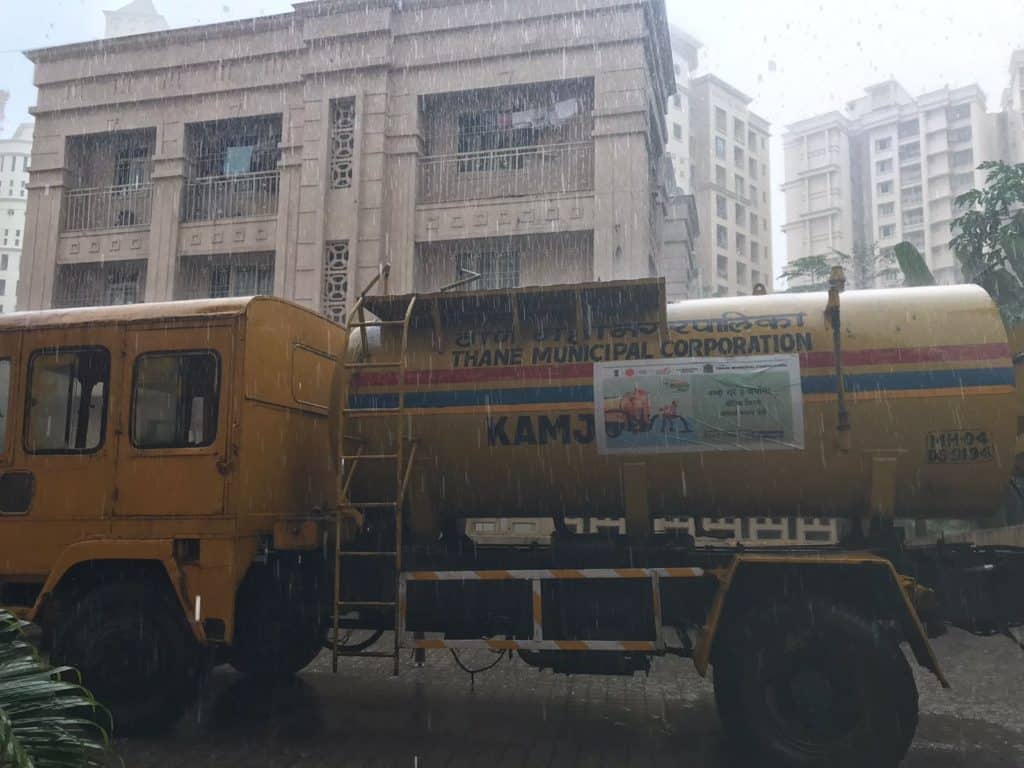In September 2021, volunteers at Muse Foundation, a Mumbai-based youth organisation that works to build awareness around manual scavenging among other pressing social issues, received a response to an RTI query they filed with the Sewerage Department of Thane Municipal Corporation. The RTI had sought information on the ‘provisional list of manual scavengers published’ and a ‘list of self-declared manual scavengers and information on their rehabilitation.’ TMC claimed that the questions are ‘Not Applicable’.
Additionally, responding to a request for the list of manual scavengers submitted to the District Level Survey Committee, they replied, ‘’The Thane Municipal Corporation’s Sewerage Department does not carry out any manual work for the maintenance of the sewerage system and thus no Safai Karmacharis are engaged in such work. The sewerage system is cleaned mechanically by the jetting and connection vehicle through the sewerage department.’’
By law, the corporation is required to execute surveys, but by denying the existence of manual scavenging, TMC has decided that these requirements do not apply to them. The volunteers of our foundation, along with other citizens have spotted manual scavenging in the presence of TMC vehicles, for which we have photographic evidence.
The prohibition of manual scavenging

The Prohibition of Employment as Manual Scavengers and their Rehabilitation Act (2013) sought to ban the practice entirely, across the country, since it was found to violate constitutional values of dignity for all. Rule 11 of the Act says, “If any Municipality has reason to believe that some persons are engaged or employed in manual scavenging within its jurisdiction, the Chief Executive Officer of such Municipality shall cause a survey to be undertaken to identify such persons.”
Point 4 of the rule says, “after completion of the survey, the Chief Executive Officer shall cause to be drawn up a provisional list of persons found to be working as manual scavengers within the jurisdiction of his Municipality and fulfilling the eligibility conditions as may be prescribed, shall cause such provisional list to be published for general information in such manner, as may be prescribed and shall invite objections to the list of from general public.”
The TMC does not seem to have carried out any activity for the identification of manual scavengers in Thane. This is a violation of the law and of the human rights of those who are forcibly engaged in a dangerous practice that puts their lives at risk. In May 2019, three young men died while cleaning a septic tank in Thane’s Pride Presidency. This is one of many such incidents across Mumbai.
The practice of manual scavenging in India, and most sanitation-related work, is defined by the caste system. Lower-caste workers are employed to physically clean septic tanks, sewers, toilets, etc with no protective gear.
Read more: Sanitation workers struggle to make a living during the lockdown
An email campaign
On November 26th, observed as Constitution Day, Muse Foundation started a mass email campaign with copies of the manual scavenging Act sent to the Chief Minister and Minister of Social Justice. The idea was to remind authorities of the law, and their duty to protect and support those who are suffering every day due to hazardous, systemic practice.
Over 250 people have sent emails till now, and shared the campaign widely across Instagram. We’ve planned a tweetstorm for December 6th, with the hashtag #EndManualScavenging, to assert our demands by tagging relevant authorities.
Citizens can go through Muse Foundation’s Instagram page for details on how to send the email.
Note: This article is based on a Press Release from Muse Foundation, a youth organization based in Mumbai, working towards building awareness towards sustainable menstruation, environment and manual scavenging. It has been republished from the release, with minimal edits.